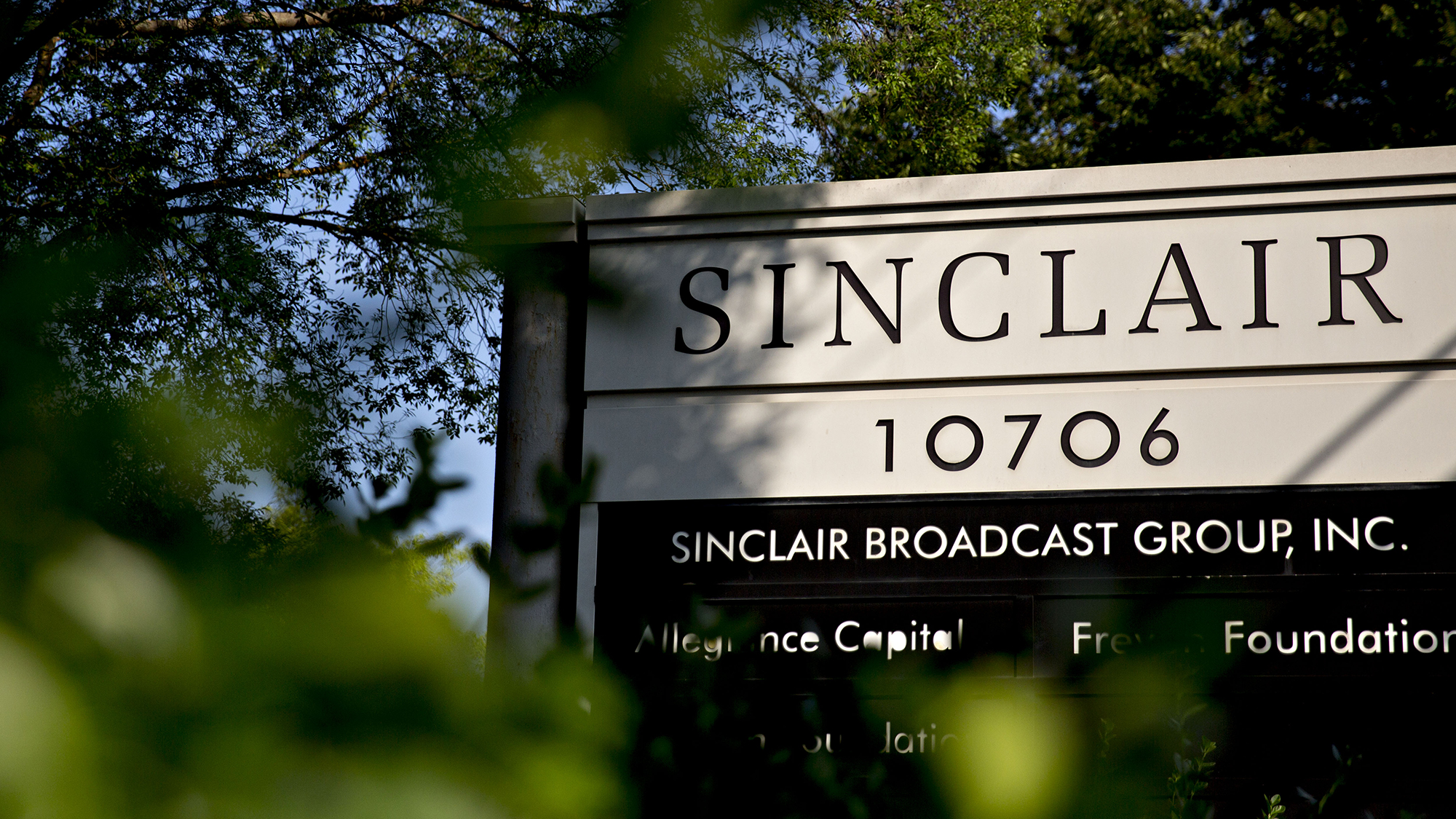FCC Upholds Record $10M Retrans Fine Against Sinclair-Managed TV Stations
Commission is unpersuaded by calls for lower penalties

The smarter way to stay on top of broadcasting and cable industry. Sign up below
You are now subscribed
Your newsletter sign-up was successful
The FCC has officially imposed the maximum per-violation fine of $512,228 apiece for all but one of the stations it had identified in a September 2020 notice of apparent liability as violating the FCC's requirement of good faith retransmission consent negotiations.
The 18 stations had been the target of a complaint by AT&T and its DirecTV DBS service alleging they had unreasonably delayed those negotiations including failing to respond to AT&T proposals.
“We applaud the FCC’s action today imposing the statutory maximum penalty on broadcast stations who deliberately violated the Commission’s good faith negotiation rules, causing lengthy and unnecessary TV blackouts that harmed the public," said an AT&T spokesperson. "These practices hold U.S. consumers hostage and we are hopeful that today’s ruling sends a strong message to broadcasters to knock off this anti-consumer behavior.”
The FCC back in September 2020 found in favor of AT&T and proposed the fines, totaling more than $10 million. It then denied an appeal by the eight station groups involved — Deerfield Media, GoCom Media, Howard Stirk Holdings, HSH, Mercury Broadcasting, MPS Media, KMTR Television, Second Generation of Iowa and Waitt Broadcasting.
The stations had a chance to respond, and they did, but the FCC was unpersuaded by the stations' argument that the fine was excessive and should be no more than $25,000 per station.
AT&T filed the complaint in June 2019 against the stations and groups, and the FCC said all of them failed to meet its standard for good-faith negotiations. All the groups were represented by consultant Duane Lammers of Max Retrans. AT&T sued Lammers, though that suit was thrown out.
AT&T pointed out in its complaint that all the stations involved were “managed and controlled by Sinclair Broadcast Group through some type of shared services agreement.” AT&T asked the FCC to 1) find that each station had violated the good faith negotiation requirement; 2) compel the stations still not negotiating in good faith to do so; and 3) fine them.
The smarter way to stay on top of broadcasting and cable industry. Sign up below
Rather than fine Lammers or the station groups, the FCC said it was appropriate to fine each station, saying "the harm to viewers is multiplied with each station that goes dark, regardless of the number of corporate parents involved in a carriage dispute, underscoring the importance of our focus on individual stations."
Good-faith negotiation complaints are not unusual, but the FCC upholding one and levying a fine was unprecedented. Such complaints have generally been dismissed for failing to show the negotiations were not in good faith, or dropped after the parties involved reach an agreement and publicly bury the hatchet, at least for the time being.
As to the one station not hit with the maximum, the FCC said: "After considering Defendants’ response to the NAL, we find no reason to cancel, withdraw, or reduce the penalty proposed, except with respect to Mercury. In light of its demonstrated inability to pay, we grant Mercury’s request to reduce the proposed forfeiture to $30,000.
But for the rest,"after considering Defendants’ response to the NAL," the commission said, "we find no reason to cancel, withdraw, or reduce the penalty proposed, except with respect to Mercury."
“ATVA applauds the FCC's decision to fine stations associated with Sinclair nearly $9 million for violating the good faith negotiation rules,” said American Television Alliance Jessica Kendust. “The FCC found that these stations and their agent, Duane Lammers, engaged in conduct that merited the maximum penalty allowed by law. We are pleased that the FCC’s action sent such a strong signal that it will not tolerate broadcasters' bad-faith conduct, especially when their behavior leads to needless TV blackouts that are harmful to American consumers."
Contributing editor John Eggerton has been an editor and/or writer on media regulation, legislation and policy for over four decades, including covering the FCC, FTC, Congress, the major media trade associations, and the federal courts. In addition to Multichannel News and Broadcasting + Cable, his work has appeared in Radio World, TV Technology, TV Fax, This Week in Consumer Electronics, Variety and the Encyclopedia Britannica.

